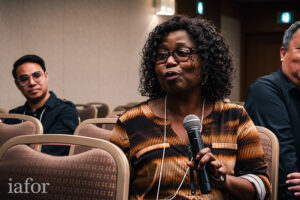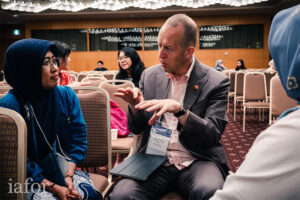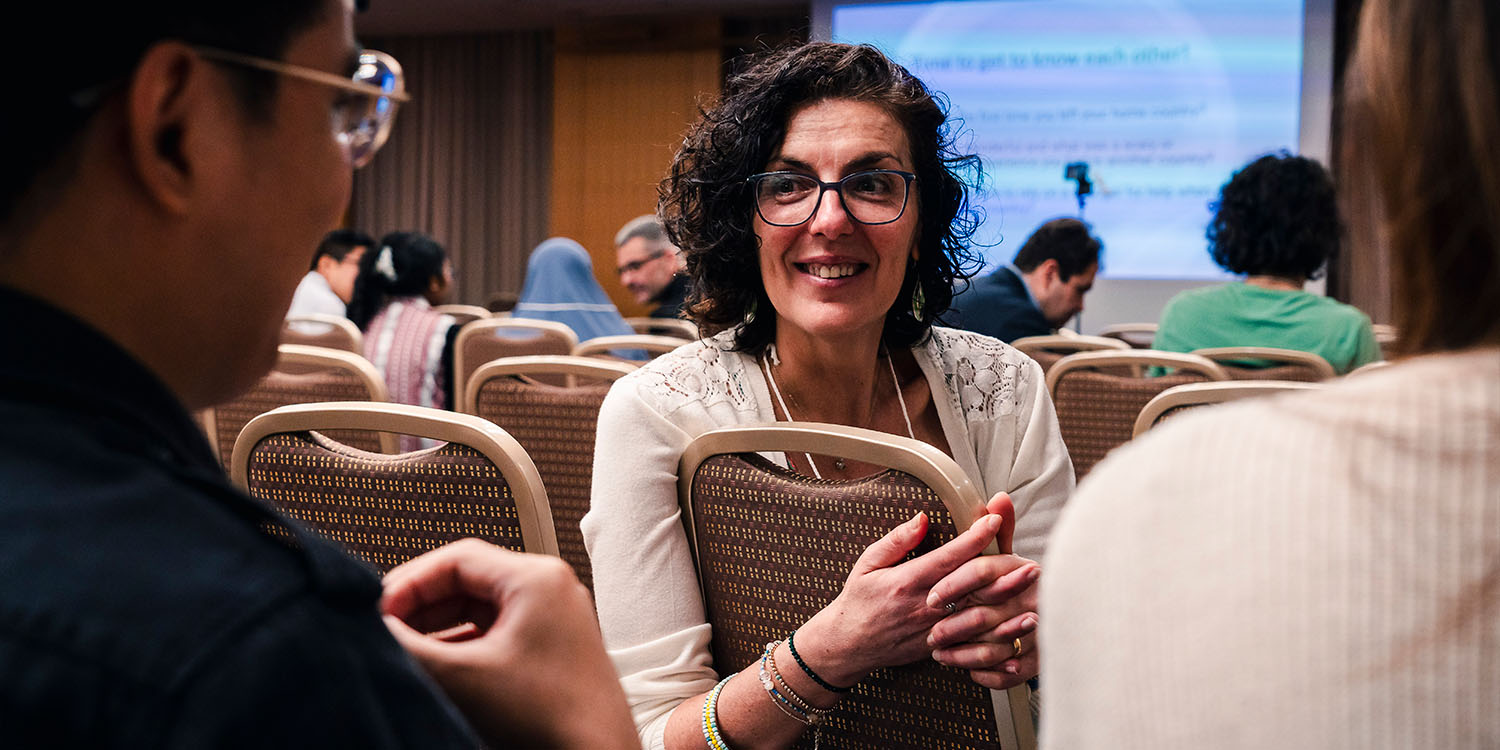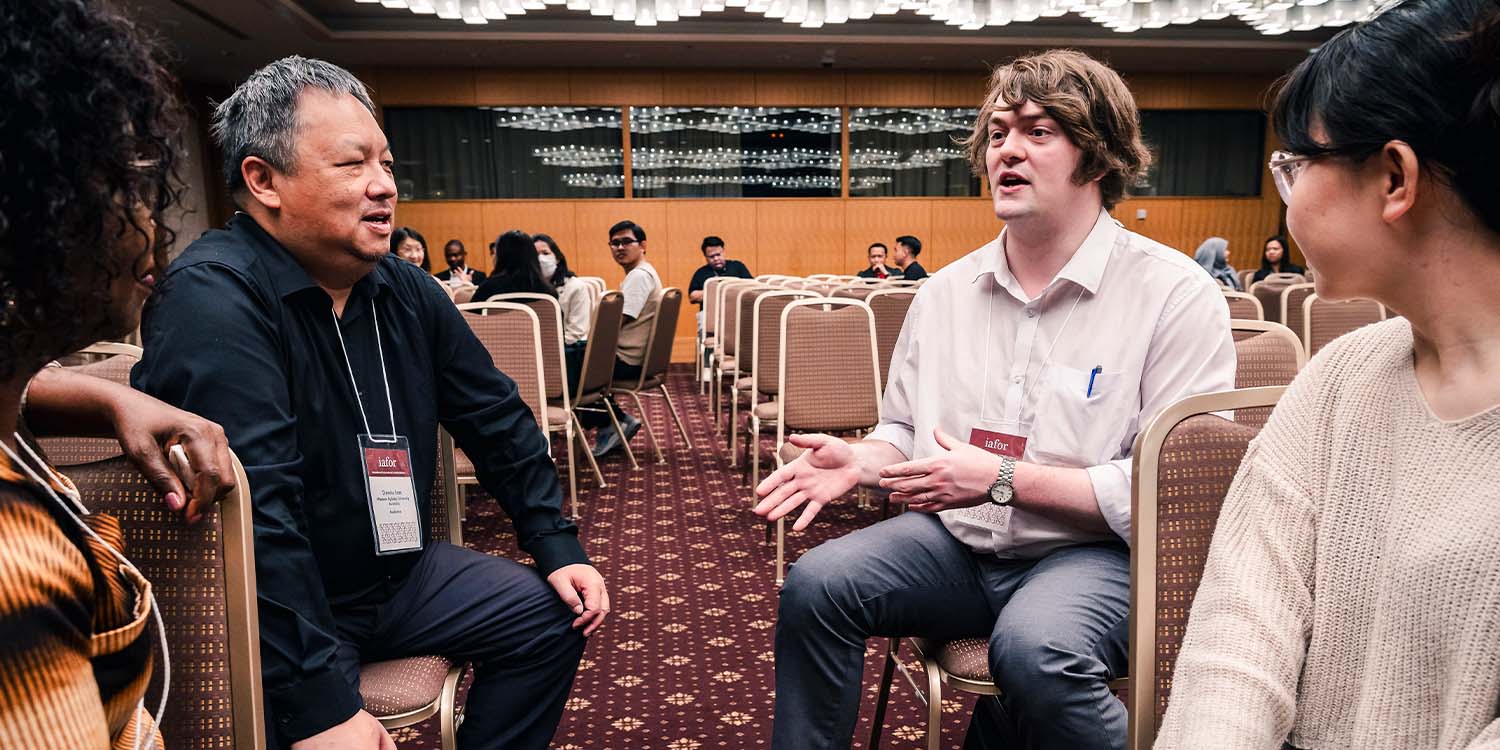IAFOR is excited to announce that The Forum will make its next stop in London, continuing its intellectual journey from where it left off in Tokyo. The Forum is a newly introduced series, designed as a platform for international, intercultural, interdisciplinary—and inclusive— discussions, joining experts and practitioners alike in an interactive and open dialogue format.
The Forum’s journey thus far
The Forum’s inception can be attributed to the fact that IAFOR has acknowledged the need for our decision-makers and international institutions to listen to the voices ‘on the ground’. There seems to be a disconnect between political institutions with their lofty aspirations and citizens with practical demands; people at the receiving end of policies sometimes have a completely different experience from those who make those policies, but seldom get the chance to advise policy-makers. IAFOR’s conference programmes attract delegates from a wide range of disciplines, and with an even broader range of academic and professional backgrounds, geopolitical perspectives, and insights. There is a real opportunity to engage with grassroots voices on the ground at our conferences, where delegates convene; The Forum seeks to present a designated space at our conferences to give such voices a platform to be shared, considered, and heard.

Professor Donald E. Hall of Binghamton University, United States, hosted The Forum in Tokyo
Participants raised concerns about the potentially elitist and overused concept of global citizenship, and how it fails to sensitise students to world problems or issues of sustainability. Our community of educators, practitioners, and academics noted instances where students did not seem to understand or care about world crises, sustainable practices, and how these are connected to their daily lives. Additionally, citizens all over the world do not feel represented by their national governments, and discussions on global issues seem to feel extremely alienated from their reality. It was argued that world crises, such as migration, climate change, or war and conflict, ones that any global citizen should be sensitive to, do not mean much to a population battling a rising cost of living and social polarisation. On the other hand, national governments in the Global South do not seem to practically assist their citizens and academics in becoming global citizens. Rigid assessments and financial restrictions hinder the inclusion of developing countries into a global community, while prejudice against them continues to exist. A common sentiment among delegates from the global South was their frustration with their own personal situation as academics and researchers within national contexts that fail to assist them in being part of an international community. Some have suggested that ‘global citizenship’ as a label, may be best reserved for academic discussions as it refers to abstract, theoretical concepts and is hardly relatable to ordinary folks.
Your counterparts in Tokyo, having expressed both professional and private frustrations and limitations regarding the concept of global citizenship, are now passing the baton to you in London.
The intellectual caravan arrives in London
The common sentiment expressed during the discussions at IAFOR’s Asian conferences may sound apprehensive: students (and citizens) seemingly do not care about global citizenship and sustainability the way it is being taught at the moment. Educational goals and teaching methods need to be reorientated and reinterpreted, without explicitly using the ‘global citizenship’ label.

A delegate describes what she does to further Global Citizenship in the classroom
Societies are in desperate need of open-minded, respectful, inquiring, ethical, and caring citizens, who engage in peaceful dialogue with each other and are accepting of the different ‘other’. Traditionally, it has been the role of formal and informal education to transmit such values to young people and mould them into responsible citizens. Whether they learn it at home, mimicking parents’ behaviour, from engaging with their social networks, both physical and digital, or at school, children are capable of learning from a young age what it means to be respectful and ethical. This is why global citizenship education and lessons on sustainability were introduced in primary, secondary, and tertiary education across the globe.
While society, media, and political institutions have a responsibility to create responsible citizens, they often fail to provide non-judgemental spaces that allow for diversity and political dialogue. Instead, universities have, time and time again, proven that they are capable of compensating for the lack of providing platforms for discussion that the media and political institutions are displaying. University campuses have seen young adults speaking up and discussing controversial socio-political topics, challenging a sometimes adverse status quo. Where societies, media, and politics fail to alleviate social polarisation, the university can become a powerful ally to social cohesion.

A group of delegates discuss attributes of responsible global citizenship
As the plenary talks at our May conference in Tokyo outlined, within the context of the university, the role of the Arts and Humanities has been paramount in educating future citizens to see the world with an open and curious mind, unbiased by the learnings of social ties and kinship. Foreign languages, literature, and various forms of art can be excellent examples of how different words have different meanings, and how one’s work can be interpreted in various ways.
It is these crucial curricula of the Arts and Humanities that the current corporate universities are threatening to eliminate. Especially in countries that inherited the Anglo-Saxon education system, the corporate-style university is overtaking all other forms in offering commercially viable courses at the cost of ‘non-essential’ programmes. In a haste to feed the labour market with graduates of specialised technical expertise, universities are turning into a non-critical, unethical, and profit-oriented factory, capable of furthering the already existing rift among members of society. There is a need for education to revert to cultivating an ethic of care among current and future citizens, who will critically think about social issues, question unethical public and social policies, and participate actively in political discussions for a better future because they care.
There seems to be a disconnect between political institutions with their lofty aspirations, the (labour) market with its profit and growth-oriented mindset, and citizens with practical demands. But is this true? If so, why does this mismatch exist and how can we address it? How can we translate the aspirations of global citizenship education into practical reality for students and society at large? Do discussions of global citizenship or world issues always stay within the academic realm or on university campuses, without any echo within society? How do we get students and people to care about the world, and how do we get governments to care about their citizens?
The overarching question that the London session of The Forum seeks to answer is: how do we get people to care?
Join the conversation at ECE/ECLL/ECAH/EGen2024
Now it is our London delegates’ turn to carry on the conversation. The Forum in London entitled “Global Citizenship: Ethics and Care” is inviting you to come and share with other international experts and colleagues through interdisciplinary dialogue what you and your newfound colleagues’ thoughts on ethics and care within global citizenship are. Through this activity, you will be able to contribute to an academic and political debate that potentially holds the key to fostering more peace and harmony among countries and within societies, and which has been troubling policy-makers for decades due to its complex nature.
IAFOR will be facilitating this Forum discussion at The European Conference on Education (ECE2024), Language Learning (ECLL2024), Arts and Humanities (ECAH2024), and Ageing & Gerontology (EGen204) on July 11, 2024, from 14:45-15:45 at the SOAS, Brunei Gallery Lecture Theatre, in London, United Kingdom. We expect all participants to attend and have a fruitful discussion on an interesting and timely topic.
On behalf of the IAFOR Academic Board and the Conference Programme Committee, we look forward to seeing you at the conference and hearing your thoughts at The Forum.



